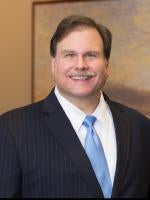Acknowledging that “effective communications with the American public” is “a critical component” to efforts to slow the spread of the coronavirus, the Federal Communications Commission (FCC) released on its own motion, a declaratory ruling on March 20, 2020, addressing the applicability of the “emergency purposes” exception to the TCPA’s prohibition against making automated and prerecorded calls without prior express consent. This declaratory ruling is meant to provide “hospitals, health care providers, state and local health officials, and other government officials” peace of mind when sending important COVID-19 information through automated calls or texts.
As readers of the blog are well aware, the TCPA contains an exception to its consent requirements for calls made for “emergency purposes.” 47 U.S.C. §§ 227(b)(1)(A)-(B). The FCC’s rules define “emergency purposes” to mean “calls made necessary in any situation affecting the health and safety of consumers.” 47 C.F.R. § 64.1200(f)(4). The FCC’s declaratory ruling officially acknowledges the undeniable point that the COVID-19 pandemic constitutes an “emergency” under the TCPA. Earlier this month, on March 13, 2020, the White House declared a national emergency in light of the COVID-19 outbreak in the United States. As of March 20, 2020, all fifty states and the District of Columbia had declared states of emergency, which have led to many cities closing schools, workplaces, parks, restaurants, and houses of worship. Public safety organizations and institutions providing healthcare services, in particular, are changing modes of operation and means of handling some public-facing tasks. For example, many health care clinics have broadened their telemedicine programs or have begun conducting new patient intake “virtually” to triage patients with flu-like symptoms. These changes need to be communicated to existing and prospective patients in a timely manner on a large scale.
In light of this rapidly evolving situation, the FCC determined that “the current pandemic constitutes such an imminent health risk to the public as to be an emergency under the TCPA” and that “certain callers may lawfully make automated calls and send automated text messages to wireless telephone numbers when such calls are necessary to protect the health and safety of citizens pursuant to the TCPA’s ‘emergency purposes’ exception.” In a passage that will raise many questions, the FCC stated that “the caller must be from a hospital, or be a healthcare provider, state or local health official, or other government official” or acting under the “express direction” of such an organization and on its behalf. Further, in order to qualify for this exception, the content of the call or message must be “solely informational, made necessary because of the COVID-19 outbreak, and directly related to the imminent health or safety risk arising out of the COVID-19 outbreak.”
Examples of these exempted calls include those “originating from a hospital that provides vital and time-sensitive health and safety information that citizens welcome, expect, and rely upon to make decisions to slow the spread of the COVID-19 disease.” Or “a call made by a county official to inform citizens of shelter-in-place requirements, quarantines, medically administered testing information, or school closures necessitated by the national emergency.” But the FCC specifically noted that this Declaratory Ruling is not intended to prejudice other pending proceedings to resolve whether governments and their contractors are subject to the TCPA in general.
Excluded from this exception are any “calls that contain advertising or telemarketing of services” (such as “advertising a commercial grocery delivery service, or selling or promoting health insurance, cleaning services, or home test kits”) and “calls made to collect debt, even if such debt arises from related health care treatment” for COVID-19. Also, while providing flexibility to health care and public-safety related entities during this challenging time, the FCC pledged to be vigilant in monitoring complaints about illegal robocalls, especially against scammers preying on consumers with fraudulent COVID-19 information.
The declaratory ruling was prepared in haste by the FCC on its own motion, without soliciting comments, which is certainly understandable in light of the rapidly evolving health emergency and the need to promote prompt communications to the public about health risks and mitigation efforts. As a result, the ruling raises questions. For example, by stating that the protected calls must be from hospitals or other healthcare providers, government officials, or their agents, did the Commission intend to suggest that calls from others would not be considered “emergency purposes” calls? Would a call from an employer to notify employees that an employee had tested positive for the virus or to inform employees about office closures due to the COVID-19 outbreak not be considered an “emergency purposes” call merely because the employer is not in the healthcare sector? Such a conclusion would make no sense. After all, the employees in that scenario are just as much at risk of infection, and the need to notify them rapidly of office closures and other mitigation efforts is just as great, regardless of whether the employer provides healthcare services or other goods or services.
While this order appears at first blush to establish a new two-part test for applicability of the emergency purposes exception during the COVID-19 pandemic, prior FCC orders make clear that the exception is not so limited. For example, the FCC referenced in this order its Blackboard-Edison Declaratory Ruling which addressed calls by a school messaging platform in which it held that “calls or messages relating to weather closures, incidents of threats and/or imminent danger to the school due to fire, dangerous persons, health risks, and unexcused absences constitute calls made for an emergency purpose because they potentially affect the health and safety of students and faculty.” Thus, this Order should be viewed as providing additional assurances to hospitals, other healthcare providers, and government officials that they can disseminate information directly related to the pandemic without fear of a later TCPA lawsuit, not as a ban on other individuals or entities utilizing the statutory emergency purposes exception in appropriate circumstances.






 />i
/>i

